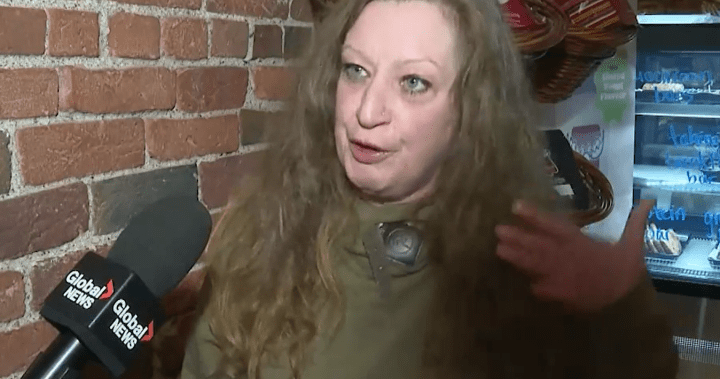New Brunswick mother speaks out about helping her son recover from addiction – New Brunswick
Overdose-related calls are on the rise in the Saint John, N.B., area, prompting police to warn about dangerous and potentially deadly drugs circulating across the province.
For one New Brunswick mother, that reminder hits close to home.
Tanya Laybolt says her son, who is in his early 30s, has been battling addiction for more than a decade. Recently, she says she’s noticed alarming changes — including an eating disorder — since his relapse in October 2024.
“I believe whatever was laced in that drug that he took the last time altered his mind,” she said.
“It’s killing people. It’s tearing families apart. It’s killing people’s mind. My son, he is so smart. It’s hard for him to put a full sentence together now.”
The executive director of Avenue B Harm Reduction, a non-profit organization that serves Saint John’s marginalized communities, says mixed or spiked drugs can have varying half-lives, which leads to unpredictable effects.
“You might take a drug once and one of the drug’s effects wears off due to the half-life. But if you do it again, it is going to then increase the half-life of the other one, which could lead to fatalities or all kinds of medical concerns,” Laura MacNeill explained.

Avenue B offers supplies such as naloxone kits, which can reverse the effects of opioid overdoses, and is offering free drug testing to help users understand what they’re using.

Get breaking National news
For news impacting Canada and around the world, sign up for breaking news alerts delivered directly to you when they happen.
“We’ve been seeing cocaine mixed with benzos. So, that’s the upper and the downer. Crystal meth mixed with benzos; there’s a lot of benzos. Our machines picked up nitazenes, which is a stronger opioid — it’s about five to 25 times stronger than fentanyl,” she said.
Laybolt says it took her son 10 visits to the emergency room before he finally received help. Having battled addictions herself and now 29 years sober, Laybolt says she’s seen addiction first-hand but nothing compares to the toxicity of today’s street drugs.
“I feel for everyone, because I know what it feels like. There’s not enough staff, nor enough space for what we’re dealing with right now. They’re overworked,” she said.
As the drug supply grows deadlier, Laybolt is pleading not just for awareness but also for compassion and more resources that could save lives.
— with a file from Global News’ Rebecca Lau
© 2025 Global News, a division of Corus Entertainment Inc.




